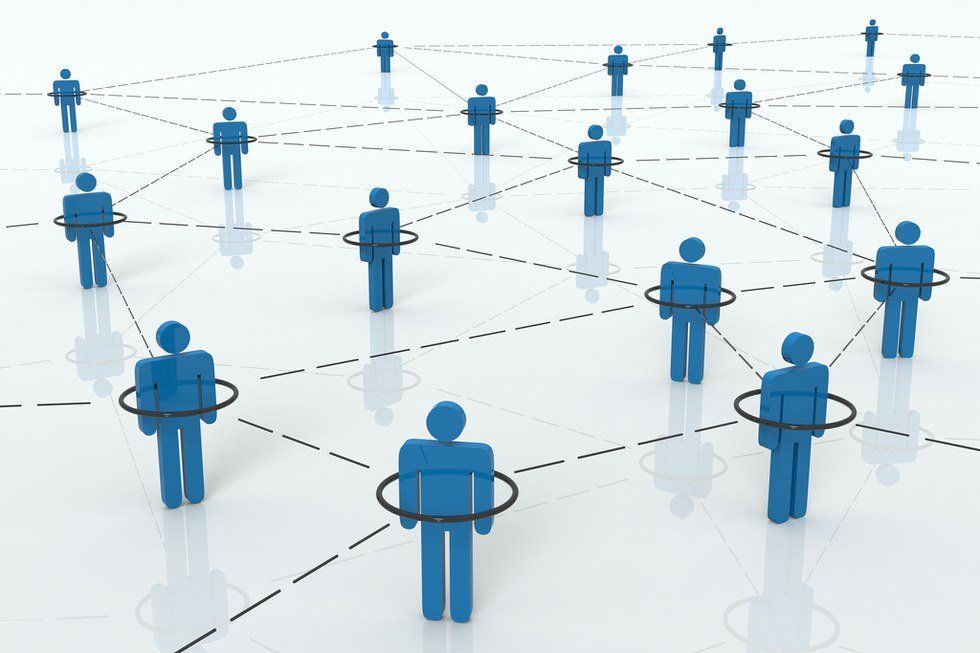Most of us don’t know a life without the heavy presence of social media in our lives. This is a presence we have become intimate with and dependent upon. We’ve all heard older people (or the rare millennials who don’t to have an online profile) in our lives mourn the days when we used to connect over dinner without glancing down at our phones. I idealize those days too. However, the social media revolution has many benefits. The world becomes smaller every day, allowing people to connect and exchange ideas instantaneously and effortlessly. At the same time, the way social media spreads messages among masses of people, it also spreads individuals’ attention far too thin for healthy maintenance of authenticity, self-perception and mental health. Because of the constant use of sites like Facebook, Twitter, Instagram, Snapchat, etc., we are not always aware of the ways social exchanges in the digital universe can negatively affect our lifestyle. One of the best ways to be cognizant of the ways that social media is subtracting from quality of life is to go without it for a while.
Many people have noticed a dependence on their profiles and timelines for identity and entertainment, leading them to go on fasts from social media. Social media fasts allow people to, over a fixed period of time, center down and rediscover their individuality, focus, values and relationships without the lens of likes and shares. If you are on the fence about going on a social media fast, here are some reasons to consider making it happen:
1. Less Unhealthy Comparison
Studies show that people who spend large amounts of time scrolling on social media are more likely to suffer from depression. Ideally, an online community would make its users feel connected and cared for. However, some people tend to leave these sites feeling some combination of envy, loneliness, frustration or anger after comparing their lives and feeling socially inadequate compared to their peers. Taking a break from social media can help a person embrace a more realistic, optimistic view of themselves and others.
2. Better Sleep
Computer screens give off blue light, which can trick the body into thinking it is midday when, in reality, it is evening. Exposure to blue light causes the body to produce less melatonin, the sleep hormone. Adequate sleep is an extremely important component of health, and late-night browsing through the explore page of Instagram can cause a person to face difficulty when trying to fall asleep. If you are interested in improving your energy and getting restful sleep, a social media fast may be just for you.
3. Less Stress
Social media supplies an influx of information for the brain to process during what would normally be rest time. The several hour’s people normally spend on sites like Facebook demand time and energy for witnessing opinions, issues and conflicts that are irrelevant to the present time and place. Fasting from social media restores the traditional approach to free time for the duration of the fast, allowing a person to live in the moment and be undivided in their attentions.
4. More Meaningful Social Interaction
Now that people are able to portray their ideal selves on social media, they tend to lose out on real intimacy and accountability. People post all types of information about themselves online, allowing them to practice transparency without actually being vulnerable with others. Important research by TED Talk legend and research professor Brené Brown, suggests that the most integral need of the human race is human connection, which requires vulnerability and authenticity with others. We need these person-to-person connections to live a fulfilled life. For a generation accustomed to editing their images and revising their comments, connecting with people from a place of authenticity takes practice. Need a chance to practice? Social media fast.
5. Cultivating Self-Control
Odds are, the first thing you do after you wake up in the morning and cut off your smartphone alarm is check your social media accounts for updates. I’m also willing to argue that you find yourself throughout the day looking at old posts on Instagram, unable to remember opening the app in the first place. If you are accessing social media on autopilot, it may be a sign of dependency and, possibly, addiction. It’s likely that you also tend to divide the attention you should be giving your loved ones between them and your phone screen. Self-control is important when it comes to managing time well, to the effect of a successful life.
6. More Presence of Mind
The most powerful thing a person can be is present. Before communities became established on the internet in addition to the “real” world, people struggled to keep from focusing on the past and the future. Now, it’s so much more complicated. There is an entire alternative "present" taking place on the internet which is constantly competing with the here and now. Great novelist Leo Tolstoy said, “There is only one time that is important — NOW! It is the most important time because it is the only time that we have any power.” Let's not give up our power. A social media fast is a good way to exercise personal power when pursuing social goals, creative endeavors, cultural experiences and other priceless ambitions.





















